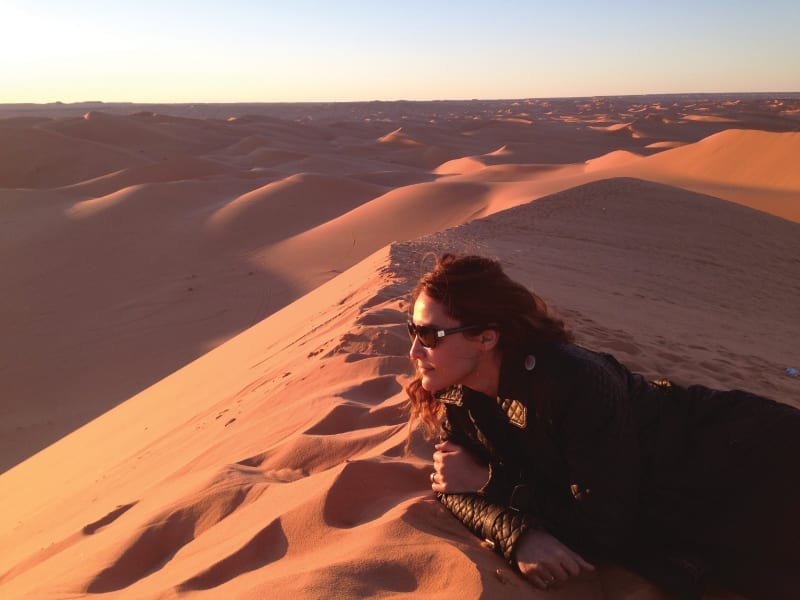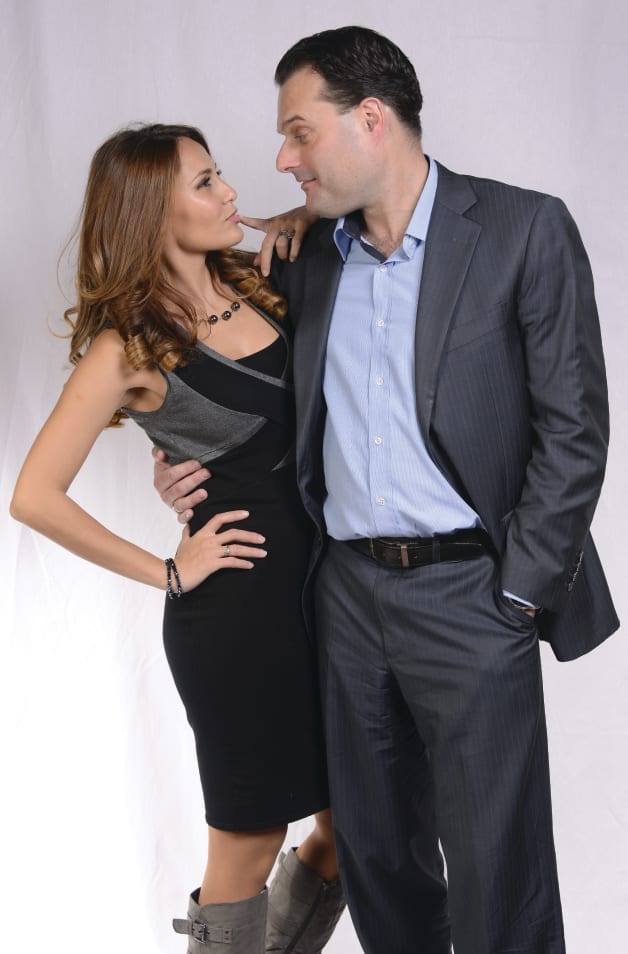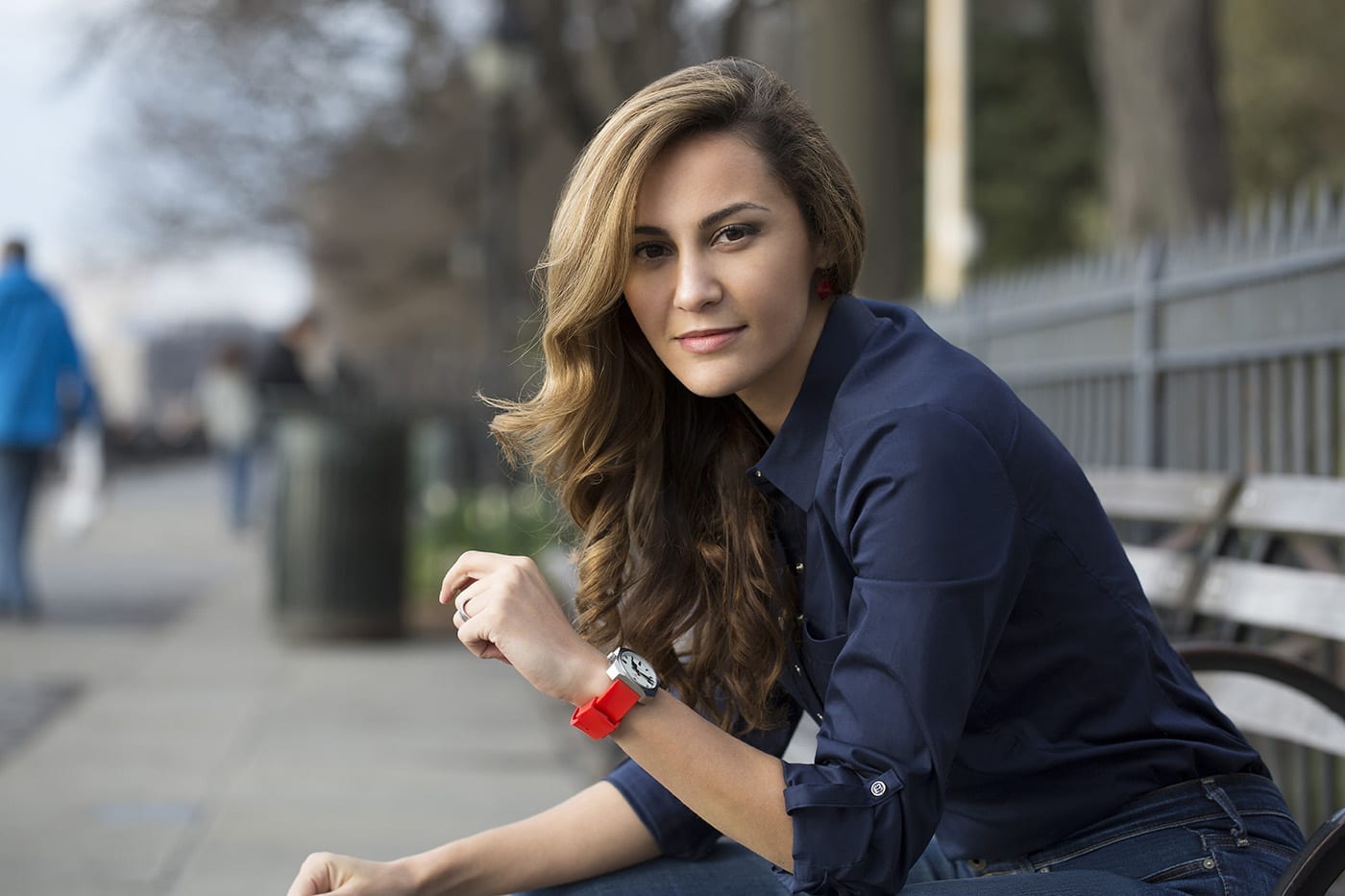Portable business is the solution for Tandem Nomads
Tell me about your parents.
My parents were both Algerian. They were raised in Algeria. Actually, my father is a child of a family of 14 children from two different mothers. It was important to my father’s father that the children of the first mother were educated on the same level as the children of the second mother, even though the first was divorced. So, I actually don’t know whose children were from which mother. It’s a big family. My mother is also a child of a family of seven kids.
Were your parents the first to enter into the diplomacy or the Diplomatic Corps?
Actually, I think my father had an older brother who passed away, who started in the Algerian Ministry of Foreign Affairs. He did not travel as much.
What was your father’s background?
My father spent his childhood in French Colonized Algeria. He was one of those Algerian children that could not learn Arabic legally. They had to go through what were essentially illegal channels to learn their own language. As soon as the independence came, the governor set a whole career path and educational system to become a diplomat. So he started right away studying diplomacy.

Amel Derragui on her wedding day.
You lived in France and met your husband at what age?
I lived in France for the first time at the age of 16 by myself. I was in high school there. I think I was 25 when I met my husband. I was living in France at that time. When I met my husband, I had just decided that I wasn’t going to move again. I was done with traveling, and I wanted to settle down. I had found a great job that I loved, and I was doing great at it. I was ready to buy an apartment. For me, owning a place is one of those things that is almost a fantasy for the child of a diplomat. I wanted to own a place that I could live in for my entire life. I was really ready to settle down. I visited my parents in Iran for the holidays. The first night we met.
Your husband was a trade commissioner in Iran for Austria. How long has he held that post?
Oh, I can count 16 years. He has been in a lot of countries: South Africa, Washington, D.C., Abu Dhabi, Iran, Austria, and now the U.S. His primary mission is to encourage business exchanges between the two countries. For instance, now that he’s in the U.S., he is here to encourage Austrian new businesses to do business in the U.S. He also helps to promote Austria as a great destination for American companies too.
Have you and your husband traveled significantly since your marriage?
In the five first years of our marriage, we moved every two years. We have lived in three countries. After a year of dating, I quit my job and joined him in Iran. Then Austria. We stayed two years there. And now New York.
Do you like New York?
I love it. It was one of the most difficult transitions for me though. In the beginning, very hard, but now I cannot be happier.
Let’s talk about the business that you started, the Tandem Nomads. Tell me about the name?
I was trying to find a way to speak about the topic of being an ex-patriot couple, a family that travels from one country to another. Somehow the team spirit must be very strong in order for this couple and family to keep its sanity and stability in an environment that is always changing. Honestly, I had thought about a lot of names. I spent probably two to three weeks looking for the right name. This one just came to me in the middle of the night. I had been brainstorming on the concept of being a team.
Why did you start Tandem Nomads?
My career had always been important to me, as was my independence. I have been independent, not financially a hundred percent, but living independently since the age of 16. My parents let me, with their support, go to the U.S. — to France and start my studies and live by myself. I always said I would never become a diplomat, and I would never marry a diplomat. So, that was the backdrop, that my career and my independence were very important to me. When I moved to Iran, I did manage to start a freelance business as a consultant in marketing communications. But while we were moving, I had to adapt my business. It had been pretty successful at some times and others less. But in every single move, I had to really search deep in myself and challenge myself in every way in order to reinvent that business. And what happened is that by the time I was able to reinvent the business, it was time to leave. It was a little challenging for me to arrive in New York in such an amazing city where I thought it’s gonna be so easy. It’s my field. New York is a city of marketing and branding, and the potential is endless. But then I realized oh, my God, how can I be different from all these people? There are so many of us working in this field. New York is marketing, and it is a melting pot of international people. So, my experience abroad was insignificant. What matters is what can you bring to the companies here? I really struggled, and it led to a bit of an identity crisis. I had always been successful, but now I was just hitting rock bottom. I did not know anymore what I was good at. It was hard, and New York is a hard city to break into. It was also very competitive. People are very nice, but it’s not enough in business to be nice.
Was there a cultural aspect?
When I lived abroad in other countries, I was an added value because people could see that I could bring knowledge from abroad, but it’s nonexistent here. In New York, because my English was so good, some businesses would not realize that I was not a local. You know, because the language is sometimes the thing that separates us. When people don’t see that you’re a foreigner, it changes their perception and vice versa. I had been going through a bit of an identity crisis wondering where I was going to go with this idea and was this the right time for me — to start something new. I was a bit tired also of having to reinvent myself even in my business. I started reaching out to people. It was one of the best things I’ve learned in my experience so far. You have to ask questions to people if you don’t know the answer. And if you have a problem, you need to find people that have the same problem. And this is what I did to start my business. I would call people and say, “You know, I don’t want to not sell myself. I just want to learn about your business. Could you please just give me 20 minutes and tell me about your business?” Well, this is what I did as an expat spouse, as a woman. I started reaching out to other women and said, “How are you doing it? How are you handling this? You did well in your studies, had a great career, and you gave it up. How did you manage to continue to build your own source of fulfillment and your own career and success?” One call after the other led to the realization that I was, first of all, pretty fortunate because not all of them did manage to do it. And then I started realizing that in this field, there are a lot of women who have this great life and environment, but, at the end of the day, that does not bring them happiness. You know, it’s not what people see from the outside that brings the happiness. It’s what we are achieving in our lives. I realized nobody was talking openly about the isolation and challenges of this nomadic lifestyle. So, first of all, I wanted to raise the topic of being an expat spouse. I should not hide from it, and actually, it’s a good thing. I am not just the lady who is following her husband. I bring value to the table as well. And the second thing, I wanted to share other stories of women who did manage to build amazing things while moving from a country to another.

Amel in the desert of her homeland, Algeria.
When someone knows that you’re an expat, why would they invest time in someone that will only be employable for a short time — in your case, two years?
That’s such a good question because that’s exactly the issue the expat spouses have in finding jobs when they move from one country to another. Why would an employer hire somebody who is going to leave? With Tandem Nomads, my podcast provides answers to that type of question. What if an employer asks you whether you intend to leave? Well, the answer on this particular example is to assure the person of what skills can be brought to the table, even if it is for a short period of time. I think that really is the secret. We have to develop transferable talents and skill sets as a global nomad. We do it naturally when we begin to listen to the other person. I also think that is what everyone can take advantage of; it is what makes us go through every challenge and every obstacle. In order to be interesting, we have to start being interested.
Is Tandem Nomads a business or philanthropy?
It is a business. The Tandem Nomads began from a need to express and give a voice to expat women who have amazing talents and amazing experiences and amazing stories. The purpose is actually to bring my skills in marketing and communication to help expat spouses build their portable businesses. I have spent a year just providing all new information that women need to be empowered, from legal advice to financial advice, business advice, and career advice. That was the first step. And slowly and slowly what I wanted to do was to bring in my message (without telling this is what you have to do) of Tandem Nomads on how to turn challenges into opportunity. I use entrepreneurship as my biggest tool to do that. For me, entrepreneurship is a bit like a religion. It’s a mindset, and that mindset is exactly the one that helps people, in general, turn challenges into opportunities. In French, entrepreneurship means taking action. It’ is not just about making profits. I do believe that, when we have that mindset of looking at a problem with an opportunity to turn it into actually a greater thing than the problem, then we can always be successful in life.
How does Tandem Nomad work?
The first step is to have the mindset. You’re in. You’re ready now to take action. That is where I come in. I mentor, train, and advise expat partners and global nomads to build their portable businesses. If the person does not know what kind of business, I work with coaches who will help them figure out their calling. Once they are ready, that’s when I come in with some basic training on how to launch a business, how to build the strategy, how to define your market, how to do your market research, how to use technology. Technology is a big component of Tandem Nomads because to build that portable business, technology is the one global communication tool that exists.
What percentage of Tandem Nomads is in the United States and what percentage is elsewhere?
Forty percent of my audience is in the U.S., and the rest is global.

Amel Derragui with her husband, Michael Friedl.
So what is in store for your future?
I see Tandem Nomads growing as a platform. We will start launching online courses where I can scale and give basics digitally to those who need them. At the basic level, I will bring in help. I would like to continue to do the advisory and consulting to those who are a bit more advanced. There I can bring my skills, what I have been doing with big corporations, and help Tandem Nomads. The vision is to see global nomads grow from not knowing where they are to becoming profitable and successful businesses through marketing strategies and business strategies. Tandem Nomads is also a network in and of itself. I encourage accountability partnerships and exchanges and team building. So my purpose is not to be industry-oriented but a horizontal build out. From A to Zed, from beginner to entrepreneur. The platform and network are entwined with partnerships, coaches, online courses. Tandem Nomads is from virtual to the real world.
Is Tandem Nomads geared toward women and/or the couple?
Both. The empowerment of women is important in the team. I think we — women in general — are just handling so much. Not just those who travel. Like the family, the kids, the husband, plus the career, and all the expectations that the world has of them. A woman always has to be perfect. She has to be able to look good. She has to be nice. She has to smile and then she has to lead with kindness, and you know, it is just a lot of pressure. On top of that, there is the prejudice that a lot of expat women feel. Being the woman who is not working because she is just traveling with her husband. What is happening is that most of the time, the success of that employer is due to the wife. There are statistics that say that 60 percent of failed expat relations are due to the unhappiness of the spouse. We should not underestimate the role of a woman in the success of a team. This is why Tandem Nomads is a team. I really want to make sure that both members of the couple help each other in this. It’s not just one who person should be working and the other following. No, it’s the whole team and the whole family, the kids included, who are moving together. I really want to share the spirit, that team thing, and also the fact that the women have to have a backup plan. You cannot control what can happen in life. If you sacrifice everything, your job, and friends to follow a man from a country to another, what happens if something goes wrong? All the roots are gone. No more retirement. No more insurance. And not a resume to show. So, I do want to make sure that women have a backup plan, even if they do not have this amazing role to take care of the family.
What will the impact of Tandem Nomads have?
I believe in social entrepreneurship. I believe that, more than governments and more than rules and regulations. Companies can have such a grave impact on society if they decide to make a profit while serving a community. We will do both.

